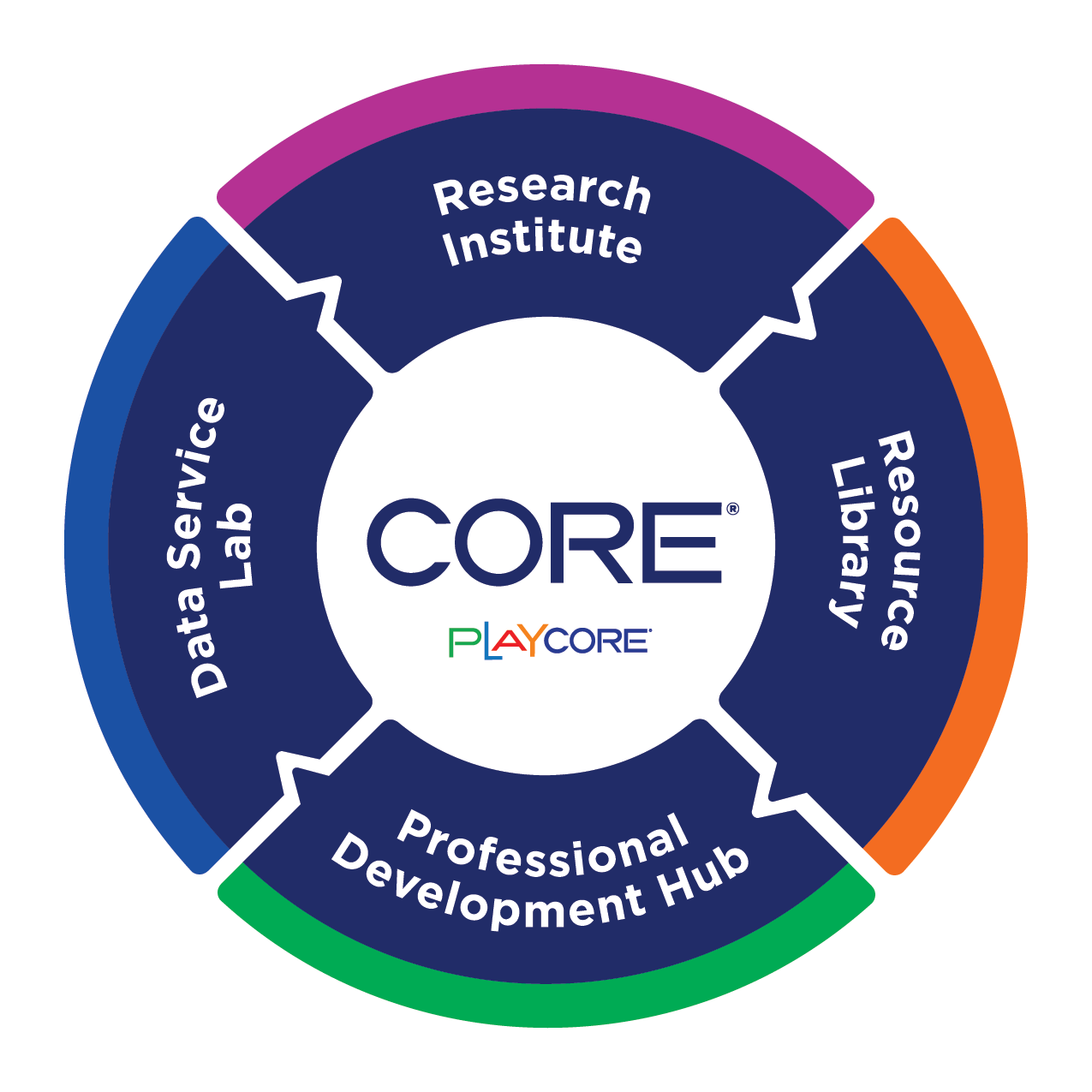

Learn and earn CEUs with the CORE Professional Development Hub.
By combining the knowledge from our Research Institute and Resource Library, we offer complimentary world-class learning opportunities where professionals can share learning and earn Continuing Education Units (CEUs) through a variety of tailored events and diverse topics.
Create an account and browse the opportunities below to start learning today!
Upcoming Live Virtual Events
-
Contains 4 Component(s), Includes Credits Recorded On: 02/18/2026
Advancements in adaptive cycling equipment are expanding opportunities for people of all ages and abilities to engage in cycling as recreation, transportation, and social connection. This panel discussion, the first session in the four-part Beyond the Minimums webinar series, brings together professionals in accessibility, recreation, and inclusive design to examine inclusive strategies for biking facilities and adaptive cycling programming in parks and community spaces. Through expert perspectives, real-world examples, and applied discussion, panelists will explore accessibility requirements, design considerations, and programmatic approaches that move beyond minimum compliance to support equitable, multigenerational participation in cycling environments. This webinar includes real-time captioning. Video Remote Interpreting (VRI) is available upon request. To request interpreting services and/or materials in an alternate format, please email core@playcore.com at least two weeks prior to the live webinar date.
-
Register
- Prices available after logging in
- More Information
-
Register
-
Contains 4 Component(s), Includes Credits Includes a Live Web Event on 03/04/2026 at 2:00 PM (EST)
Choosing the right bleachers or grandstands is not always an easy task. Selecting the appropriate equipment to suit the specific needs of each facility is an important factor in providing comfort, appeal, and meaningful use. Make a Stand explores the evolution of stadiums, grandstands, and bleachers, offers the different features and benefits of various types of seating, addresses current standards and criteria, and provides selection, installation, and maintenance information, along with case examples that share the stories of those who have successfully implemented projects in their community and/or school.
-
Register
- Prices available after logging in
- More Information
-
Register
On-Demand Learning Events
-
Contains 3 Component(s), Includes Credits Recorded On: 06/11/2020
The Youth Engagement and Action for Health (YEAH!) project works nationally with African American, American Indian, Latino, Asian, and Pacific Islander lower-income urban/rural middle schoolers to take an in-depth look at their neighborhood’s strengths and weaknesses that are most likely to affect physical activity. Using a group-based program curriculum that is designed to help youth advocate for policy/environmental changes that promote physical activity, youth collect information through small groups and are taught to set priorities for improvements around problems they identify.
-
Register
- Prices available after logging in
- More Information
-
Register
-
Contains 3 Component(s), Includes Credits
In order to ensure equitable use by all, aquatic agencies and facilities must understand, embrace and respond to inclusive guidelines and programming, align to community needs, and implement innovative ways to offer environments that serve diverse individuals. This session will explore evidence-based health benefits of water immersion, share meaningful facility design strategies, and review ADA and ABA guidelines to make your facility a place for everyBODY to enjoy.
-
Register
- Prices available after logging in
- More Information
-
Register
-
Contains 4 Component(s), Includes Credits
The Unleashed: Off-leash Dog Park Design Trends and Planning Tips guidebook helps communities effectively advocate for the many benefits of off-leash dog parks. Dog parks provide enjoyable ways to recreate and exercise for both dog owners and their dogs. They also create community destinations. Research shows there are many positive effects for individuals that own a dog(s); as well as health and social benefits of owning a dog, caring for it, and recreating outdoors with pets. In addition, design considerations and case study examples are outlined to effectively design a dog park and champion initiatives that provide meaningful outcomes supporting overall health and social benefits for the community.
-
Register
- Prices available after logging in
- More Information
-
Register
-
Contains 9 Component(s), Includes Credits
As climate change accelerates, cities must rethink how they manage water, mitigate flooding, and create sustainable environments. PlayCore, in partnership with The Cultural Landscape Foundation, presents an on-demand series featuring global leaders in landscape architecture and urban water management. Hear from visionaries including Kongjian Yu (China), Kotchakorn Voraakhom (Thailand), Herbert Dreiseitl (Germany), Jasper Hugtenburg (Netherlands), and Mia Lehrer (USA) as they share case studies and strategies on sponge cities, river restoration, blue-green infrastructure, and water-conscious urban design. This international series highlights how nature-based solutions transform water from a threat into a resource, building healthier, more resilient cities worldwide.
-
Register
- Prices available after logging in
- More Information
-
Register
-
Contains 4 Component(s), Includes Credits
Providing a truly inclusive play or park experience requires thoughtful planning and attention to ensure that site furnishings and amenities are more usable by more people, including those with disabilities, to the greatest extent possible. The placement or location of site furnishings and amenities and their operability is key to providing an inclusive play and park experience. Site amenities and design considerations within the built environment should be integrated throughout park destinations to support inclusive, intergenerational play and recreation. Scoping and technical guidelines for benches, picnic tables, grills, waste and recycling receptacles, picnic pavilions, drinking fountains/bottle fillers, telescopes, docks and piers, fitness equipment, toilet rooms, signage, and temporary events will all be addressed. This is the fourth session of a yearlong four-part Beyond the Minimums accessibility series. This webinar includes real-time captioning and video remote interpreting (VRI) upon request. To request video interpreting services and/or resources in an alternate format, please email core@playcore.com at least two weeks prior to the live webinar date.
-
Register
- Prices available after logging in
- More Information
-
Register
| Access Date | Quiz Result | Score | Actions |
|---|
Please Login
Search
Site Feedback
Please help us improve the experience by providing your feedback below!
